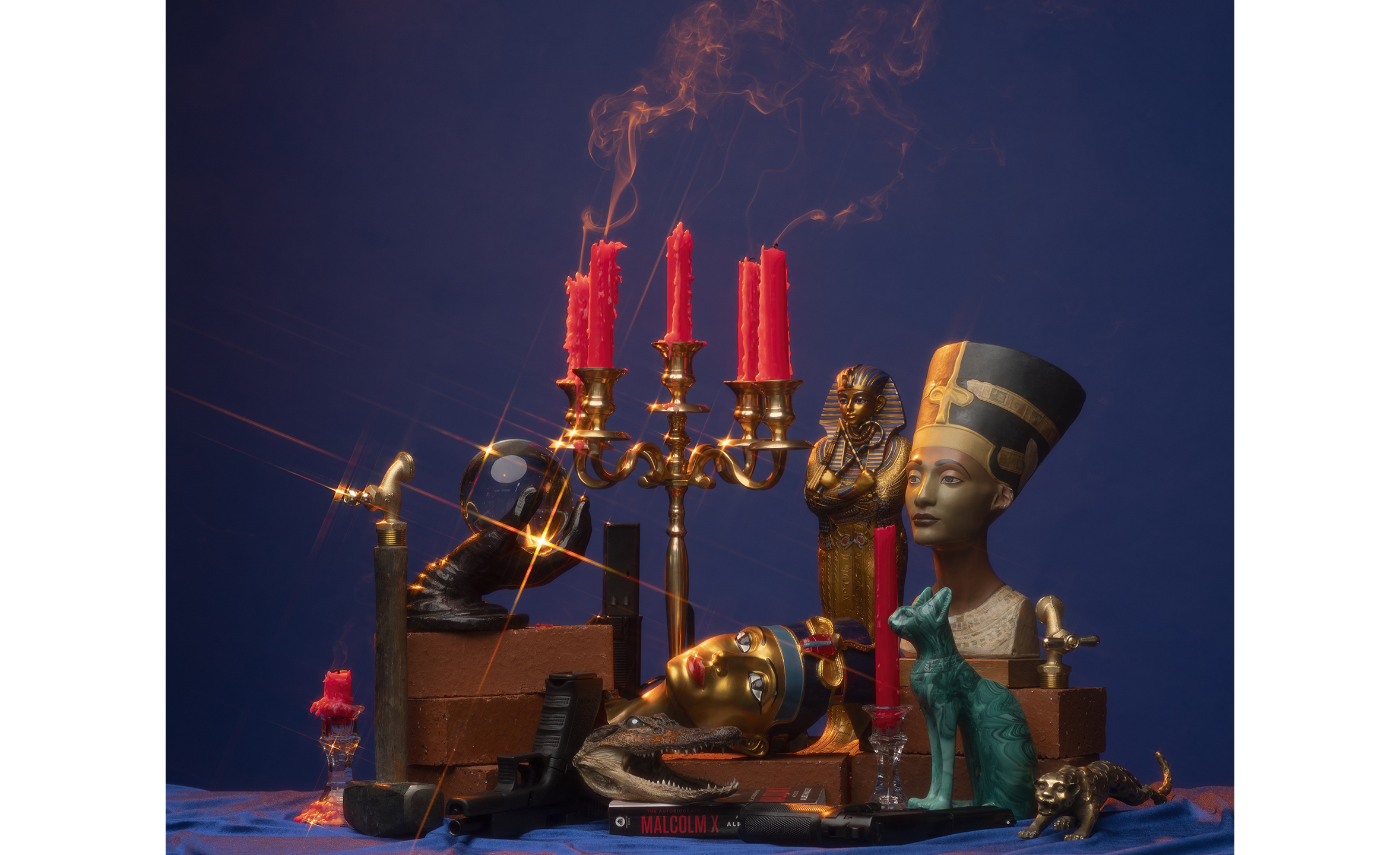
Walk into artist Awol Erizku’s new show, “Mystic Parallax,” at The Flag Foundation in New York, and you’re greeted by the large scale neon work reading, “Fuck Twelve” (2018). You may think the exhibition is focused on police brutality. Instead, Erizku is looking toward an expanded view of Black culture and imagination that hasn’t been filtered through whiteness.* Throughout the exhibition, Erizku offers a global, cross-cultural perspective, breaking free of the constraints of identity within United States borders to reimagine a new set of possibilities where spirituality comes into play.
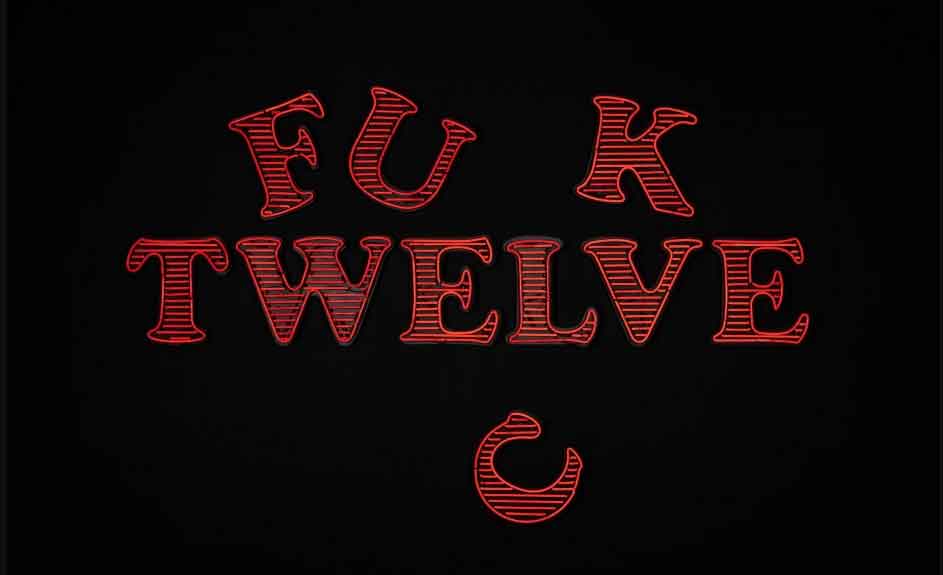
Using the motif of fire in photographs, drawings, videos, and sculptures, Erizku symbolically destroys, purifies, and creates a space that lies beyond the lens of “whitewashed art history.” Images of African masks in flames and a burning white plaster bust of Nefertiti represent acts of recovery that wipe the slate clean and reconnect the iconography to its origins.
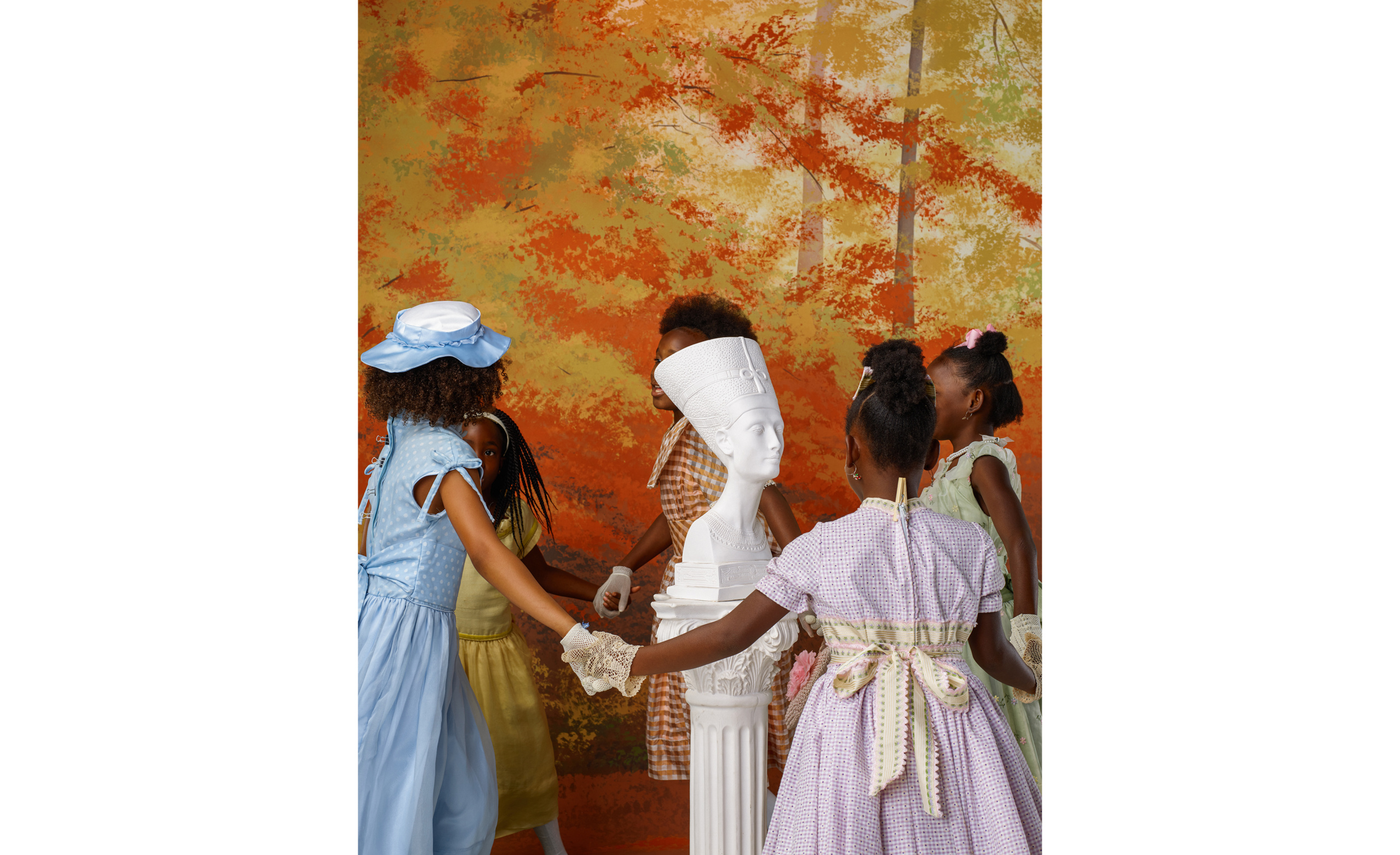
Themes of empowerment and Islamic spirituality further Erizku’s exploration of global Blackness . In “Malcolm x Freestyle (Pharaoh’s Dance),” 2019-2020, civil rights leader Malcolm X, who advocated for alliances between the Black activism in the US and Independence movements abroad, is represented by a visually complex still life portrait. Including a bust of Nefertiti, a hammer, a gun and a panther, the work reflects Erizku’s interest in bringing together iconic references to question what it means to be Black. In “Ramadan Drawings,” April 23-May 23, 2020, Erizku uses incense, ash and a basketball on the surface of the paper to produce a series of quiet, meditative pieces. His poignant video, “Bird Talk, Time I Danced for the Moon,” 2020, captures the reflections of a man walking up the hill to the iconic Hollywood sign, musing on his experiences of bigotry in the US. In another video, “Mystic Parallax: Visual Manifesto,” 2020, a woman recites the Shahada, the Muslim declaration of faith, while Robert Farris Thompson’s book, Flash of the Spirit, is seen going up in flames. The work speaks to the complex relationship between monotheism and polytheism in Africa, symbolically destroying a book representing a Westernized history of African diasporic culture.
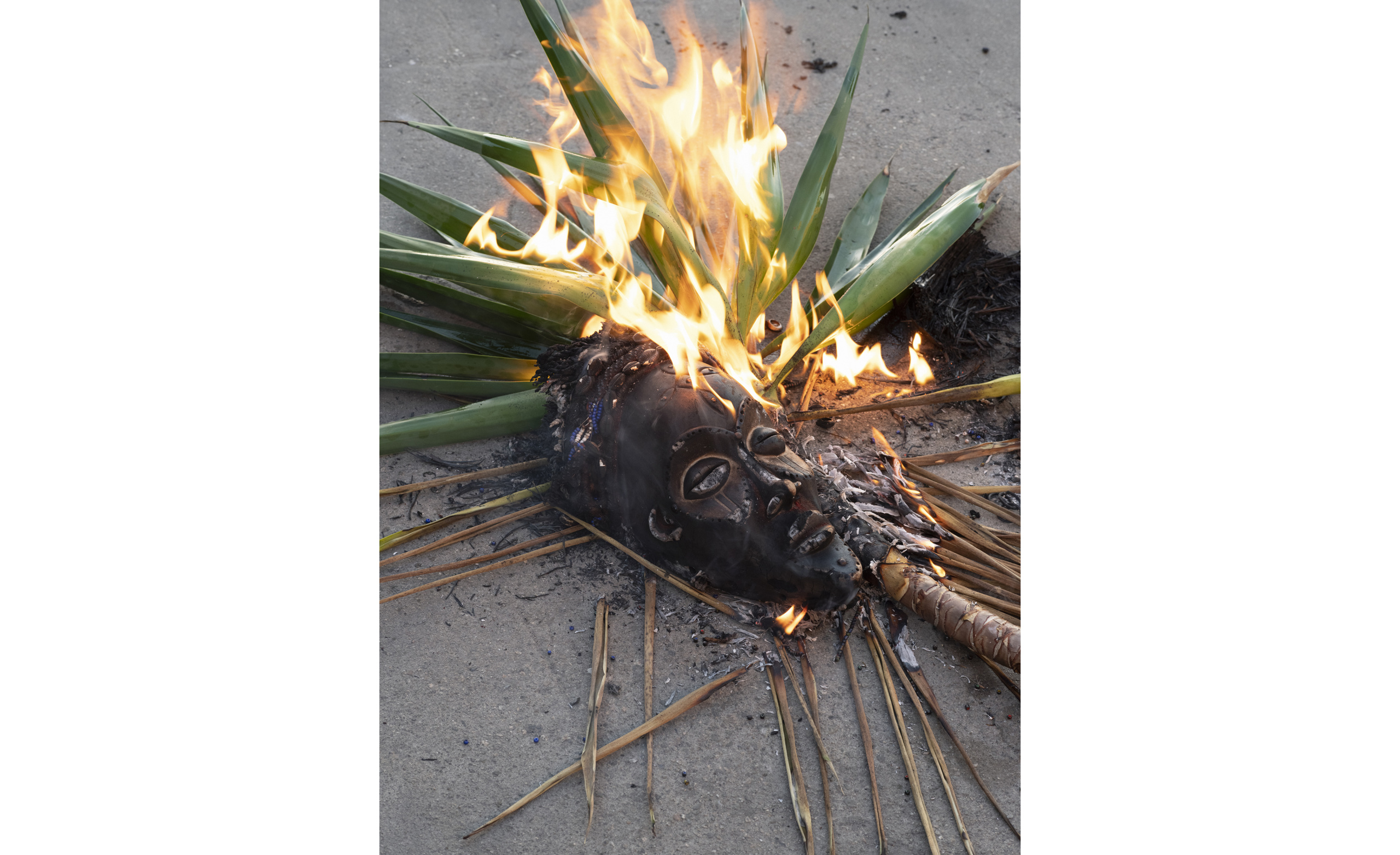
As in all Erizku’s shows, music plays a critical role. While he has not produced a playlist for this exhibition as he’s done for previous shows, he enlisted jazz musician and creator of Stretch Music, Chris Scott, to score seven compositions that continuously play throughout the galleries. The aroma of burning incense adds to the sensorial experience, which according to Erizku conjures up familial memories while creating a more spiritual lens through which viewers can access his work.
*Trap music artists like Gucci Mane and Migos popularized the phrase “Fuck Twelve” about police drug units. Erizku’s reference is specific to Black forms of language, music, and culture, while also condemning police violence.

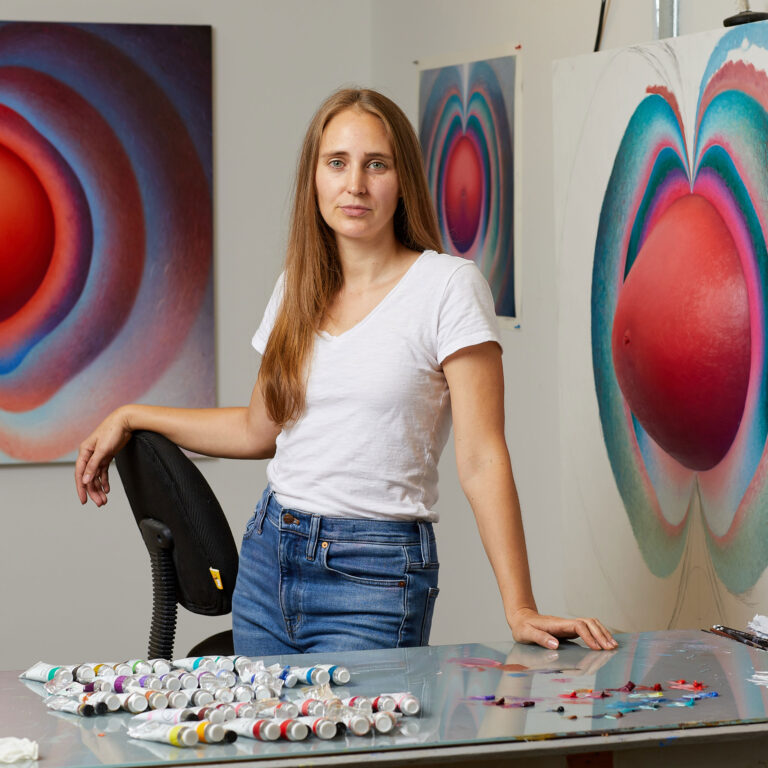








 in your life?
in your life?

